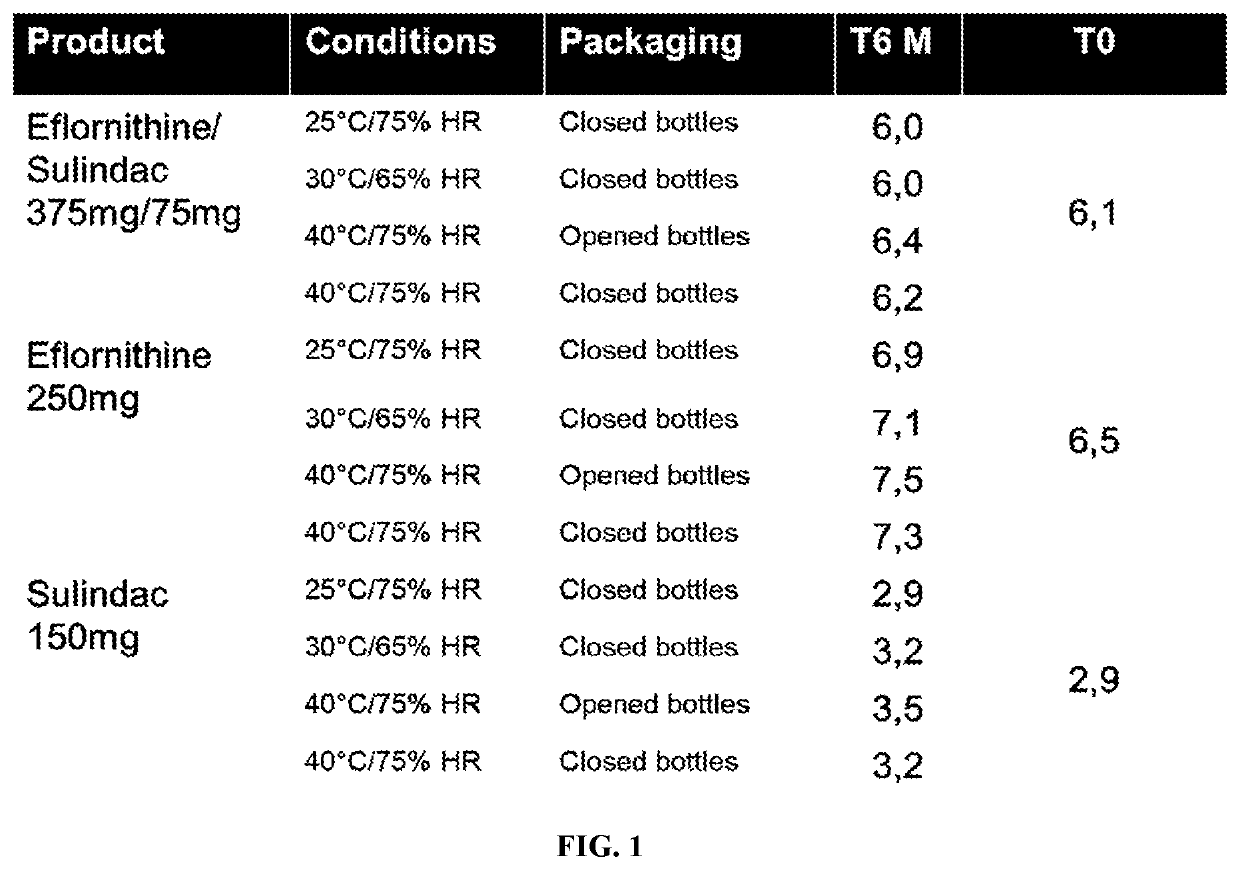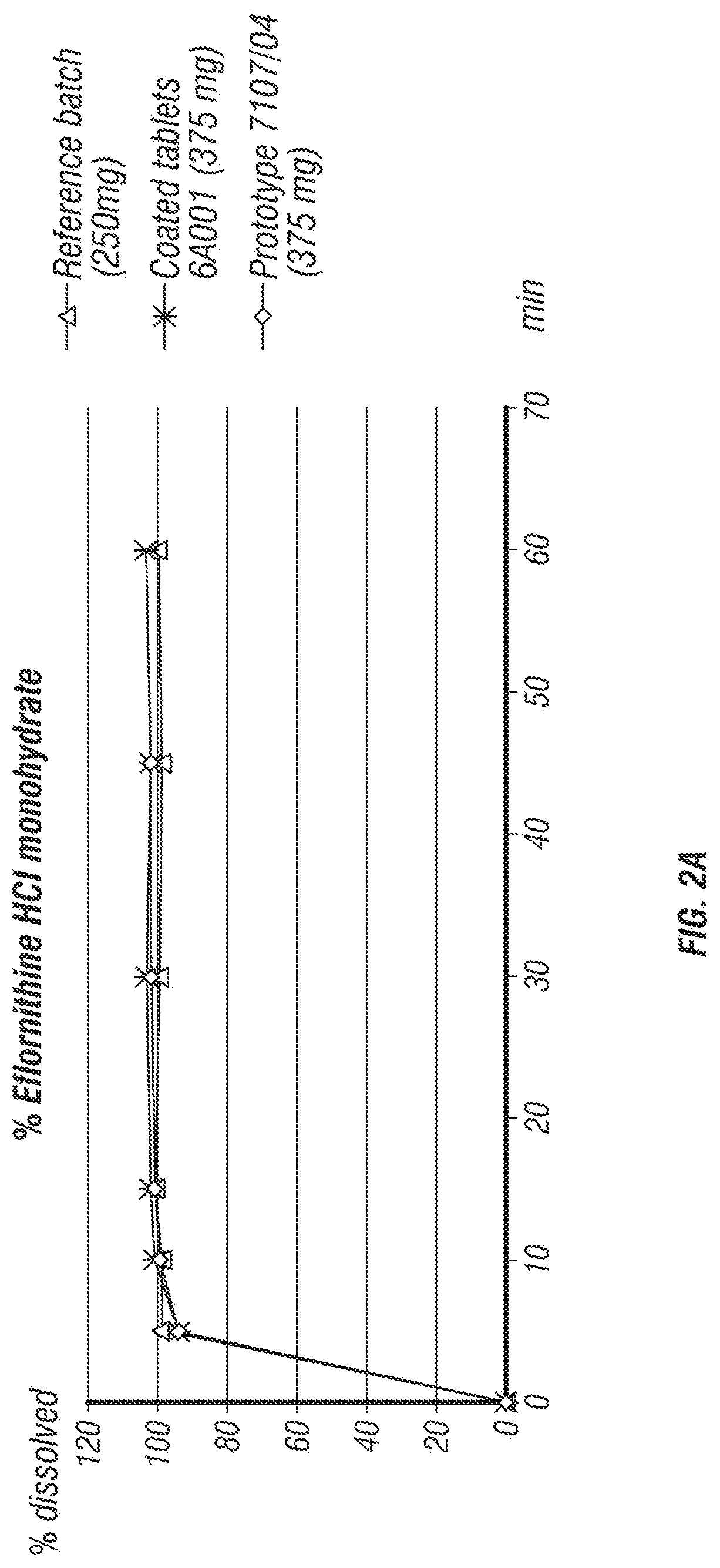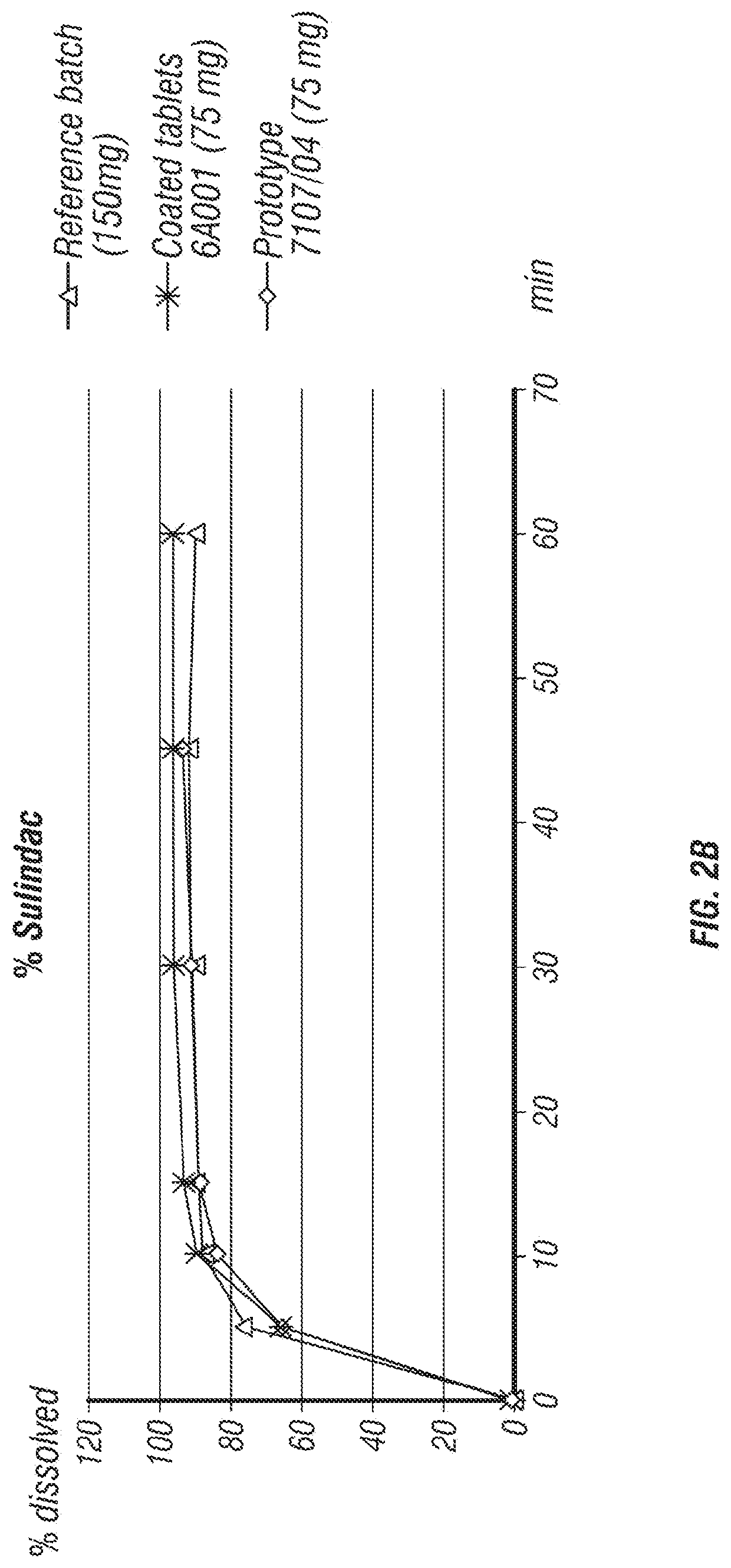Eflornithine and sulindac, fixed dose combination formulation
a combination formulation and eflornithine technology, applied in the field of cancer biology and medicine, can solve the problems of complex pharmaceutical drug product development of solid oral dosage forms, increased cardiovascular events among patients with high baseline, and modest treatment, and achieve the effect of preventing tablet capping
- Summary
- Abstract
- Description
- Claims
- Application Information
AI Technical Summary
Benefits of technology
Problems solved by technology
Method used
Image
Examples
example 1
nt of Eflornithine HCl and Sulindac Combination Tables
[0175]In the development process of a fixed dose combination (FDC) tablet comprising eflornithine HCl and sulindac, several formulations were tested (Table 1). The parameters that were tested included tablet disintegration time, tablet hardness, and percentage of tablet friability.
[0176]Formulation I was manufactured into a 900 mg tablet by first mixing ⅓ of the silicified MCC (PROSOLV®) with the eflornithine HCl in a 1 quart v-blender. Next, the sulindac and ⅓ of the silicified MCC (PROSOLV®) was pre-mixed in a polyethylene (PE) bag and added to the blender along with the colloidal silicon dioxide (CARBOSIL®) and the pregelatinized corn starch (STARCH 1500®). The PE bag was rinsed with the remaining ⅓ of silicified MCC (PROSOLV®) and added to the blender. The mix was blended for 10 minutes at about 25 rpm before the addition of hand screened magnesium stearate and then blended for an additional 3 minutes. This formulation was fo...
example 2
nt of Formulation IV
[0184]From Example 1, Formulation IV was further tested to determine which parameters can be altered to prevent capping and sticking. The first parameter tested was the compression force and the addition of a pre-compression force at about 5-15% of the compression force (Table 5). To evaluate the compression and pre-pressure forces for the Formulation IV 700 mg tablet to reach a hardness of about 20 kp, several trials were performed. In a first trial, a final blend of the Formulation IV 700 mg tablet was manufactured using Equipment C (Table 9). The manufacturing process involved pre-mixing CARBOSIL®, part 2 of the PROSOLV® and sulindac in a PE bag. Next, ½ of part 1 of the PROSOLV® and eflornithine were added to a 10-quart v-blender with the pre-mix. The remaining ½ of part 1 of the PROSOLV® was used to rinse the PE bag and added to the v-blender. The mix was blended for 35 minutes at about 7 rpm. The mix was then removed from the blender and delumped through a ...
example 3
pient and Coating Compatibility
[0198]A non-cGMP drug excipient compatibility study for eflornithine HCl / sulindac combination tablet was conducted. Appearance, HPLC Assay and XRPD properties were evaluated using a series of samples. The excipients that were tested included PVP, HPMC, lactose, EXPLOTAB™, Ac-Di-Sol®, PROSOLV®, STARCH 1500®, and OPADRY® Yellow. Samples prepared for the excipient compatibility were all 1:1 physical mixtures of API(s) with excipient(s), except the eflornithine HCl:sulindac preparation that was 5:1, and the eflornithine HCl:sulindac:H2O preparation that was about 6:1:0.3. Total mass of most samples was approximately 750 mg. Preparation involved weigh off of components into 20 cc scintillation vials, closed and vortexed for approximately 30 seconds. The samples were then stored in a 40° C. / 75% RH stability chamber for four weeks. Lids on the vials were loosely secured and were protected from light while stored in the chamber.
[0199]Appearance observations we...
PUM
| Property | Measurement | Unit |
|---|---|---|
| weight | aaaaa | aaaaa |
| weight | aaaaa | aaaaa |
| weight percent | aaaaa | aaaaa |
Abstract
Description
Claims
Application Information
 Login to View More
Login to View More - R&D
- Intellectual Property
- Life Sciences
- Materials
- Tech Scout
- Unparalleled Data Quality
- Higher Quality Content
- 60% Fewer Hallucinations
Browse by: Latest US Patents, China's latest patents, Technical Efficacy Thesaurus, Application Domain, Technology Topic, Popular Technical Reports.
© 2025 PatSnap. All rights reserved.Legal|Privacy policy|Modern Slavery Act Transparency Statement|Sitemap|About US| Contact US: help@patsnap.com



